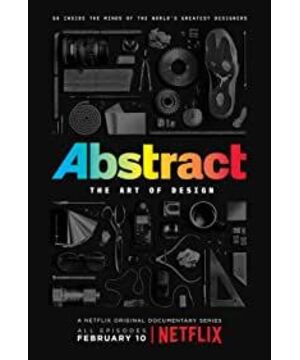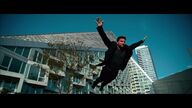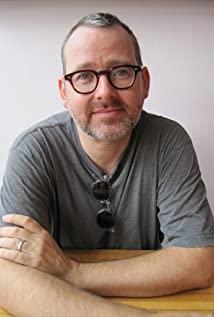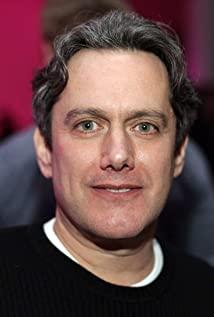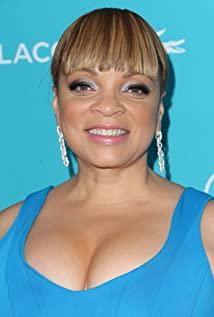I just watched the first two episodes of Abstract in one breath, and I felt that I couldn't stop, so I took advantage of the residual heat to write about the viewing experience.
Episode 1:
Christoph Niemann is a graphic designer who regularly paints the covers of The New Yorker. He is a German who lived in New York for many years before moving back to Berlin for inspiration. A self-described control freak, he agreed to make the documentary, but he only wanted to show him in the studio from 9 am to 6 pm, plus a few museum visits.
My own career has been in a bit of a slump lately, but Christoph's quote in this episode is inspiring: "Athletes practice every day, musicians practice every day, and who says artists don't need to practice?"
It is true that these professions that require such high talent require day and night practice. What reason do I have to stagnate and slack off?
Episode 2:
Forgive my ignorance, I didn't know that Tinker Hatfield was the one who founded and designed Air Jordan. I think this episode must be very hot for a lot of fans, shoe fans.
From this episode, Tinker Hatfield is a very typical West Coast cool guy. Many of his lifestyles, experiences and ideas are very similar to the boss I interned in California last year. My boss, who should be the same age as Tinker Hatfield, also drives a vintage Volkswagen minivan to the beach and surfs alone two or three times a week.
Tinker Hatfield has a career that I envy and that fits very well with mainstream American values: architect, pole vaulter, designer and successful businessman. Tinker Hatfield is more of a doer than an artist than Christoph Niemann. Tinker Hatfield is a more Americanized and commercialized sneaker myth.
This episode reminded me of the startup chicken soup "Zero to One" I was watching recently, and the Tinker Hatfield experience and final words made me feel that as an entrepreneur, experiencing life and solving problems is the key to innovation.
To be continued in the next few episodes :)
Episode 3:
Before watching this episode, I didn't think about whether the stage designer is an artist, but after watching this episode, I think Es is the kind of woman I would like and should get to know more about in the future.
Stage designers don't just serve other people's performances, the stage is theirs too. In the same way, a good stage design is not just a green leaf for performances, but itself is worthy of being appreciated as a work of art. Es is artistic, but not a typical and paranoid artist. Her creativity and imagination are not like the passion-burning universe of some artists, but from learning music as a child, roaming London, and fantasizing about rooftops. why do i like her? Because she can continue to explore herself, connect with other arts, and create a stage with her own characteristics without taking away the brilliance of others.
The art of the light and shadow stage only exists in this moment and in your memory.
Episode 4:
At the end of the documentary, the staff asked Bjarke Ingels: "Have you ever dreamed of architecture?"
Bjarke Ingels laughs: "Actually, I never dream about my job."
Architecture is my childhood dream. As for why I didn't study architecture in the end, I have intricate reasons for myself and the environment. Before watching this episode, I thought this episode would make me feel amazing, but after watching it, there was a feeling of "a Danish architect who is young and promising, dares to dare to think and reach the pinnacle of life". This episode has a bit of a promo for his personal work and the American Dream that makes me feel a little pale.
What is the meaning of architecture? Put people in affordable housing? A personal statement of artistic achievement? City landmarks and collective identity? Or a leap forward in aesthetics and civilization?
What I think in my mind now is: people-oriented.
5-8:
I watched 6-8 episodes in one go last night. And I didn't write a review after watching episode 5 last night, probably because I felt a little bored and had nothing to say.
Maybe because each episode of this drama has a different director, I think the style gap is quite big. The reason why I feel a little uninterested in episodes 5-8 is that there is less artistic sense like the first episode, and more interpretation like an ordinary documentary. Episode 7 Graphic Design I find a topic so interesting to be narrated without much interest.
I originally watched episode 6 and was quite interested in this photographer named Platon. But when I see a photo of a Chinese politician taken by him, I will not comment on it, everyone can distinguish it for themselves.
PS The first season of Netflix's drama mainly depicts artists near New York in the United States and closer to Europe. Audiences who want to see some West Bank culture or Asian culture may be disappointed.
PPS = = At the end, I felt that The New Yorker gave Netflix any benefit, and I felt that I had played a lot of soft advertisements.
View more about Abstract: The Art of Design reviews


